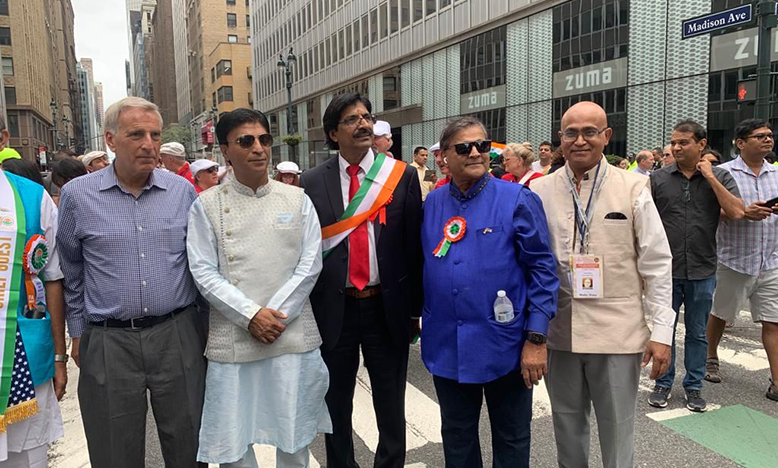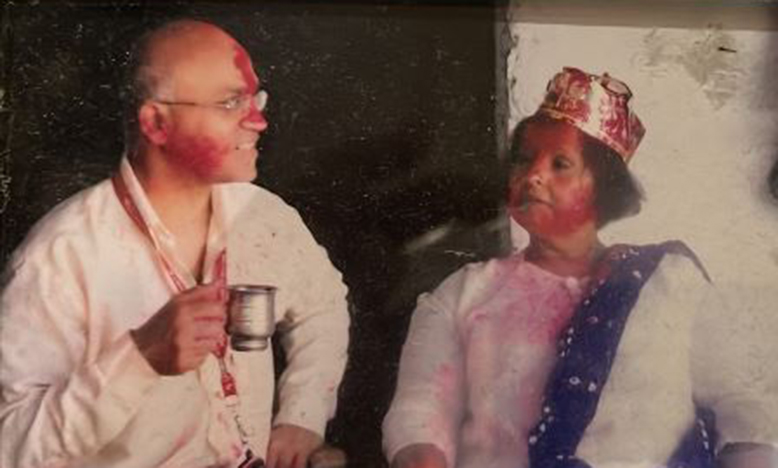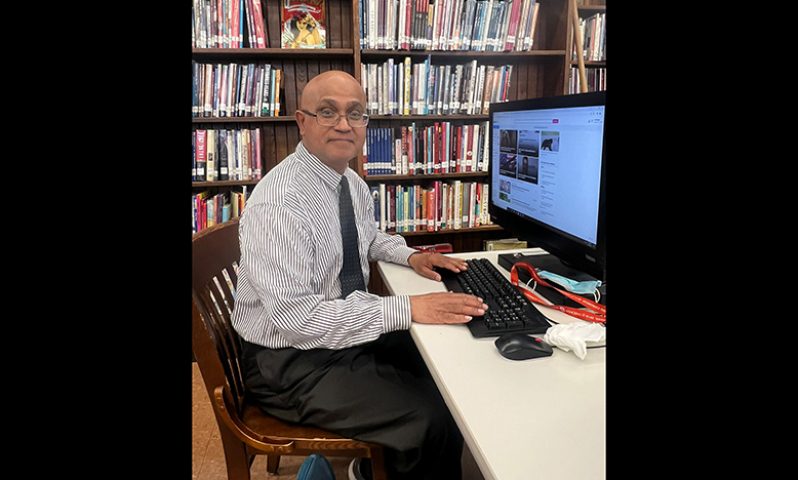PROLIFIC writer, Vishnu Bisram, known for his activism in Guyana and the diaspora related to Guyanese and Caribbean affairs, continues to perform free public service, being one of the few persons to piece together Guyanese history in the United States of America.
Knowledgeable on diaspora and contemporary matters, he has written on various topics including those having to do with economics, politics, history, sociology, education, and anthropology. He’s also written short biographies, tributes to others and book reviews.
He aims to keep Guyanese informed about local politics and has written extensively on election rigging. With his multi-faceted contributions, Bisram has participated in the “struggle against Burnham’s undemocratic rule as a young person, having the record of fighting very early for restoration of democracy from 1960s in Guyana”.
He has documented the significant contributions of Guyanese in the American society; and believes that their contributions should be taught in American history similar to the history of other nationalities like the Irish, Italians, Jewish and Jamaicans, among others, all of whom have told their own stories on their migration to and experiences in America.

Bisram said his achievements have nothing to do with the American dream but are due to his own efforts. “I fought the hell to get an education and fought my own battle as well as the battle for Guyana,” he said.
He has kept the door open to India in his many trips to the sub-continent through his writings which he believes can help to keep Guyanese in contact with India. “Through these writings, people are able to gain knowledge of India, and the Indian nationals have knowledge of Guyana and Guyanese diaspora. As a consequence, Guyanese have a greater understanding of India as a global power and India’s achievements and international relations,” he pointed out.
Bisram attended the Corentyne High School, migrated to NYC in 1977, enrolled at university at age 17 pursuing a Bachelor’s of Science (BS) Degree in Biochemistry and pre-medical studies as a full-time student. He also completed an undergraduate major in Political science and did a Master of Arts (MA) in international relations and several MAs thereafter in Political Science, History, Economics, Education Administration and other subjects.
He completed his major for the Bachelor of Science Degree and delayed graduation by a year to complete another Major in Political Science. Bisram was elected to student government serving four years at the undergraduate level, including as Vice-President and four more years at the graduate level including as President.

Also a reporter and newspaper columnist for four decades, he has taught for that same period in New York City and serves as guest lecturer at several universities including in India, Mauritius, Fiji, Trinidad and the USA.
Bisram served as adviser to politicians and political parties in Guyana, Trinidad and Tobago, Antigua, Granada, St. Lucia, Fiji, Mauritius, India, and other countries and has been involved in community affairs in the USA since the 1970s.
He worked on countless political campaigns in the USA, including for Presidential, gubernatorial, congressional, statewide and citywide office. Congressman Greg Meeks saluted him and applauded his work, especially for helping him to get elected to congress some 25 years ago.
Bisram has organised academic conferences on Guyana, the Caribbean, and Indian diaspora including the 150th anniversary of Indian presence in Guyana and a separate conference for Indian presence in Trinidad. He did same for the 175th anniversary and for the hundredth anniversary of abolition of indentureship as well as end of indentureship.
According to him, Guyanese abroad and Indians outside of India were formerly called ‘Overseas Indians’ and ‘Overseas Guyanese.’
“In the early 1980s, I co-coined the term Indian diaspora and Guyanese diaspora to refer to these groups. And they took on a life of their own and became popularised so much so that by 1990, they became standard usage,” Bisram shared.
Similarly, he said the description of Richmond Hill as ‘Little Guyana’ was started by his friend, Vassan Ramracha, when they formerly went to the area to distribute literature about human rights violations in Guyana and seek support to combat the dictatorship. “The term took on a life of its own and eventually some three decades later officially having a signage on a post — Little Guyana.”



.jpg)











